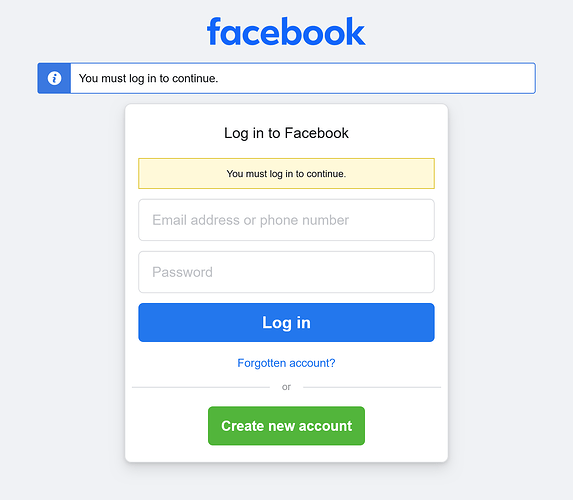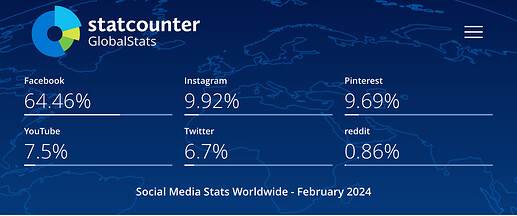And you cannot be informed.
Facebook
It’s difficult to say otherwise. Facebook is the larger part of Meta Platforms Inc, a very very large enterprise. It’s a listed company. How big? Big enough to survive a $US232 billion fall in market value in Feb 2022 and still be in business.
Can one be fully informed if one cannot access Facebook?
Is Facebook really a social media App - web resource, or as part of Meta has it become something else? Note it monetises the presence of its community users by facilitating marketing access on a scale no other single media organisation can. It has real shareholders and generates a real profit.
Facebook (Meta) has two using groups.
- Those who pay it for access as part of marketing.
- Individuals or groups of individuals accessing it as a means of communicating.
Meta needs both to survive.
Facebook (Meta) presents a different face to each group. Somewhat like Janus, (the ancient Roman god of beginnings, gates, transitions, time, duality, doorways, passages, frames, and endings).
Meta Platforms Inc operates as a social technology company. The Company builds applications and technologies that help people connect, find communities, and grow businesses. Meta Platform is also involved in advertisements, augmented, and virtual reality.
Of Meta’s 5 key businesses Facebook, Instagram, Messenger, What’s App and Meta Advertising none are a public service. One only needs to pay for the benefits of using the last, and ignoring the batter that facilitates access to the others.
Is there a point at which Meta’s prominence places it in that role to the exclusion of all others?
Some would say Meta is well on its way to being the one and only. Dependence as with any product can become once hooked an addiction, longer term consequences not always what one might want. Facebook should come with a public health warning. 
The value of Meta’s products, Facebook being the leader is in the success delivered to the business paying for access. How long before the addiction becomes universal? Will a business in the future ever need to look outside the Meta Platform to sell its product?
Using Meta ads, businesses can reach people in their social environment during their social activities and Meta ads enable social recommendation through likes and comments. Users Location, gender, age, education etc. are highly targeted, therefore Meta ads are personalised and micro targeted.


